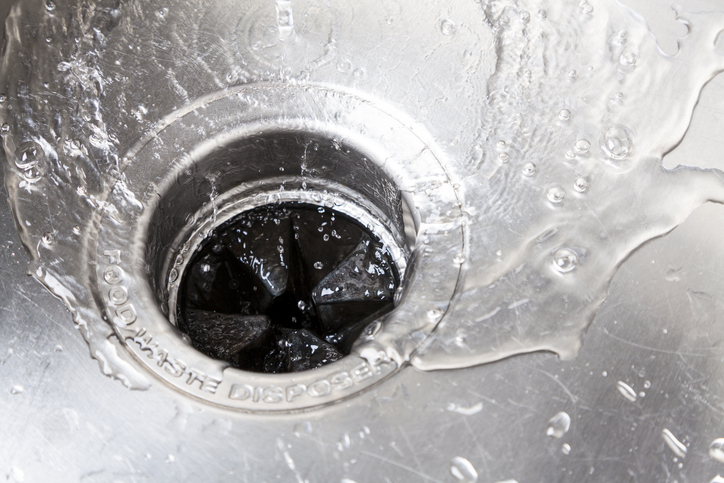Introduction
Your garbage disposal plays a crucial role in maintaining a clean and efficient kitchen. It helps break down food waste and prevents clogs in your plumbing system. However, without proper maintenance, your disposal can accumulate food debris, bacteria, and unpleasant odors. Cleaning garbage disposal is essential to keep it functioning efficiently and to prolong its lifespan. But how often should you clean your garbage disposal? This guide will explore the recommended cleaning frequency, effective cleaning methods, and tips for maintaining a healthy disposal unit.
1. How Frequently Should You Clean Your Garbage Disposal?
Cleaning your garbage disposal should be part of your regular kitchen maintenance routine. The frequency depends on how often you use it and the type of food waste processed.
- Daily Maintenance: Rinse the disposal with cold water after each use to remove food particles.
- Weekly Cleaning: Use mild cleaning solutions like baking soda and vinegar to eliminate odors and break down grease buildup.
- Monthly Deep Cleaning: Perform a thorough cleaning using ice cubes, citrus peels, and cleaning brushes to remove hidden debris and bacteria.
Following these guidelines will keep your disposal fresh, odor-free, and functioning efficiently.
2. Signs That Indicate Your Garbage Disposal Needs Cleaning
Even if you follow a regular cleaning schedule, there are times when your garbage disposal may need extra attention. Watch for these signs:
- Foul Odors: Persistent bad smells indicate food debris is trapped in the disposal.
- Slow Draining: If the water takes longer to drain, buildup inside the unit could cause a blockage.
- Unusual Noises: Grinding or rattling sounds suggest food waste or small objects are stuck inside.
- Visible Food Residue: If you notice leftover food particles around the disposal blades, it’s time for a thorough cleaning.
Addressing these signs promptly can prevent further issues and keep your disposal in good condition.
3. Effective Methods for Cleaning Your Garbage Disposal
There are several safe and effective ways to clean your garbage disposal. Here are some of the best techniques:
- Baking Soda and Vinegar: Pour half a cup of baking soda into the disposal, followed by one cup of vinegar. Let it fizz for a few minutes, then rinse with hot water.
- Ice Cubes and Salt: Grind a handful of ice cubes and coarse salt in the disposal to remove stuck-on debris and sharpen the blades.
- Citrus Peels: Grinding lemon or orange peels helps deodorize the disposal and break down grease.
- Dish Soap and Hot Water: Run hot soapy water through the disposal while it’s running to eliminate grease buildup.
- Brush Cleaning: Use a disposal unit maintenance brush to scrub the interior and remove stubborn food particles.
These simple cleaning methods help keep your disposal fresh and free of harmful buildup.
4. Foods to Avoid Putting in Your Garbage Disposal
Certain foods can cause clogs, and dull blades, or lead to unpleasant odors. Avoid putting the following items in your garbage disposal:
- Grease and Oil: These substances can solidify and clog the drain.
- Fibrous Vegetables: Celery, corn husks, and onion skins can wrap around the blades and hinder performance.
- Eggshells: The membrane lining can stick to the blades, reducing efficiency.
- Coffee Grounds: These can accumulate over time and create a sludge-like buildup.
- Large Bones and Pits: Hard materials like chicken bones or fruit pits can damage the blades.
Being mindful of what goes into your disposal will help maintain its longevity and effectiveness.
5. How to Prevent Clogs and Odors in Your Garbage Disposal
Preventing clogs and odors is just as important as regular cleaning. Here are some maintenance tips:
- Run Cold Water: Always run cold water while using the disposal to solidify grease and allow proper grinding.
- Use It Regularly: Running the disposal frequently prevents rust and keeps the motor in good shape.
- Cut Large Items into Smaller Pieces: This makes it easier for the disposal to process food waste.
- Flush with Hot Water Weekly: A thorough rinse with hot water helps clear grease and residue.
- Use Natural Deodorizers: Citrus peels and vinegar help eliminate lingering odors.
Implementing these habits will reduce the need for frequent deep cleanings and keep your disposal working efficiently.
6. What to Do If Your Garbage Disposal Stops Working
If your garbage disposal isn’t functioning correctly, follow these troubleshooting steps:
- Check for Clogs: Inspect the disposal for food particles or objects causing a blockage.
- Reset the Disposal: Press the reset button located at the bottom of the unit to restart it.
- Manually Turn the Blades: Use an Allen wrench to turn the disposal blades and dislodge obstructions.
- Avoid Using Harsh Chemicals: Chemical drain cleaners can damage the disposal’s components.
- Call a Professional: If the problem persists, consult a professional plumber for repairs or replacement.
Addressing issues early can prevent costly repairs and extend the lifespan of your disposal unit.
Regularly cleaning garbage disposal is essential for keeping it in good working condition. By following a consistent cleaning schedule, avoiding problematic foods, and implementing preventive measures, you can ensure a long-lasting and efficient disposal system. Paying attention to warning signs and addressing issues promptly will prevent unpleasant odors, clogs, and breakdowns.
Conclusion
Do you need professional help with cleaning garbage disposal? Drain Flo Plumbing offers expert maintenance and repair services. Call our experts at (813) 391-1500 today to schedule your service!



